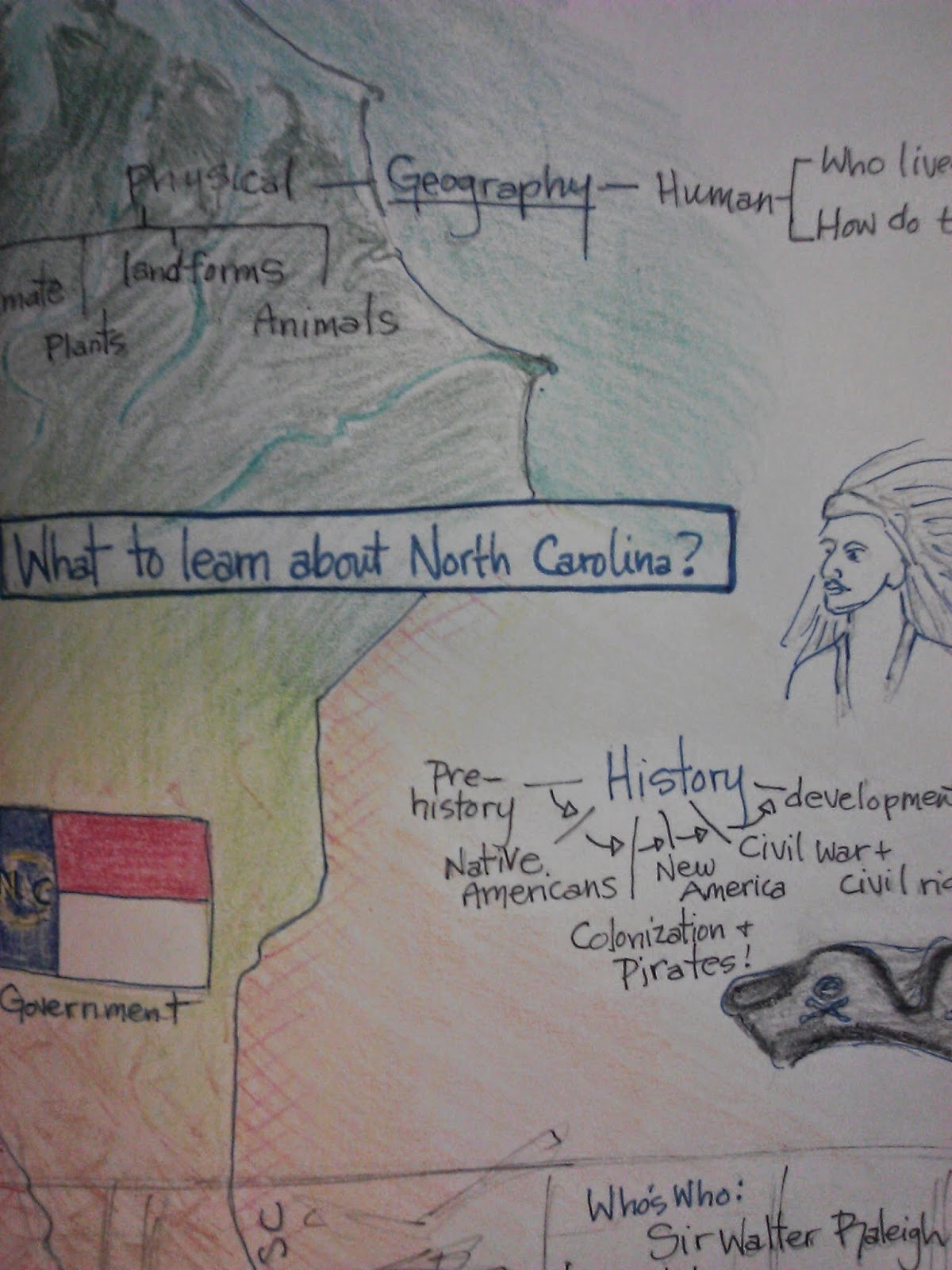To Learn is To Question

My oldest is about to be in fourth grade, the year when North Carolina school children study the state they live in. As with most subjects, I find my knowledge lacking and no single, clear, comprehensive source of information.
What to do?
Study NC using a variety of texts, of course, and then get out there and see it, schlep around museums, and make my own journal about it all.
Just as I discovered in grad school, research using a variety of texts creates the best overall picture- no single source is cutting it for me.
And just as I learned in studying world history, I need a basic framework in place before I can add depth or remember specifics.
Forget the wordy "adult" books and bring on the K-6 texts!
More on this later in the summer...
In the meantime, I woke up thinking about the Universe (aka Space) unit that we did this past year and what that study taught me about the acquisition and application of knowledge.
Historians, scientists, and scholars get it wrong!
I always knew this, but I never pondered why such clearly intelligent people would spend such vast amounts of time on a subject yet be unable to find the truth in it. This is important to me because as a teacher and learner, I am incredibly concerned with how to avoid this mistake!
Western-centric, short-sighted studies of the universe would lead us to believe that Galileo Galilei (Italian-1564-1642) first came up with the idea of a helio-centric universe. Nonsense, he was just the first to prove it - based on the phases of Venus - in the modern era. Non-western cultures (I'm thinking of the Maya in particular.) understood the workings of our solar system. So why couldn't the Europeans?
ONE PROBLEM: Knowledge is Subject to the Powers of the Day
Powerful religious leaders taught that humans were the center of God's universe, so how could our planet not be the center of our solar system? Nevermind that this makes no sense either in a religious or scientific context. Questioning authority was - and is - an invitation for punishment.
ONE SOLUTION: Creativity, Simplicity, and an Open Mind
Ptolemy (Greek, 100-170) is remembered not for his fantastic, comprehensive catalog of the stars, but for his back-bending efforts to inaccurately prove a geo-centric universe. Orbits within orbits, complexity within complexity. Only when Nicolaus Copernicus (Polish, 1473-1543) demanded simplicity was he able to discover the truth. Of course, there was plenty of creativity and open mindedness going on. Issac Newton (English, 1642-1727) and Albert Einstein (German, 1879-1955) are terrific examples of what can be accomplished when an open, creative mind looks for the simplicity in our universe.
Sadly, many models of education tend to squelch creativity and open-mindedness in the relentless pursuit of hammering facts, or what is believed at the time to be facts. What we lack is the freedom to question. I am certainly not saying that we shouldn't learn what has been discovered and hypothesized. On the contrary, I stress to my children that the only way any of the scientists we studied accomplished anything was by learning everything they could and then questioning it all.
My parents, once again, deserve credit for this one. My mother often tells me of how her father was emphatically taught that the atom cannot be split. (Perhaps the world would be a much better place if this were indeed the case, but along came an open-minded, creative individual to deliver more power than power-hungry humans have sense to use.) In my own immediate world, my parents have always given me the freedom to pursue knowledge and truth rather than demand strict adherence to any one point of view. I grew up watching them argue about politics and religion, question the policies and practices of school systems, and refuse to settle for the prescribed answers of the day. I hope that as a teacher and parent, I can impart that same perspective and liberty to my own children and students.
Learn voraciously.
Question incessantly.
Truth is out there.


Comments
Post a Comment